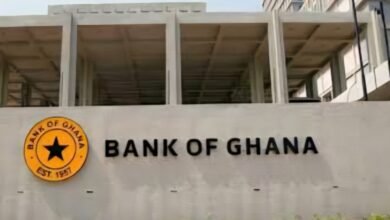BoG Issues New Guidelines on Inward Remittance Services, Warns of Severe Sanctions for Non-Compliance

The Bank of Ghana (BoG) has introduced updated guidelines to regulate inward remittance services in the country, cautioning all players in the sector against engaging in anti-competitive or unfair market practices.
According to the Central Bank, entities involved in the provision of inward remittance services are strictly prohibited from offering rebates, commissions, or preferential arrangements that create undue advantage or distort market conditions. Such practices, the BoG emphasized, undermine fair competition and will attract decisive regulatory action, including sanctions and penalties under existing laws.
Objectives of the New Guidelines
The revised guidelines are designed to:
- Provide a clear framework for Dedicated Electronic Money Issuers (DEMIs) and Enhanced Payment Service Providers (EPSPs) in partnering with Money Transfer Operators (MTOs) to deliver inward remittance services to beneficiaries.
- Establish minimum standards and requirements for the provision of inward remittance services.
These measures, the BoG noted, will enhance transparency, ensure fair competition, and safeguard the interests of beneficiaries who rely on remittances for their livelihoods.
Scope of the Guidelines
The new framework applies to inward international remittance services provided by Payment Service Providers (PSPs) in partnership with MTOs. Covered services include remittances terminated into:
- Bank accounts,
- Mobile money wallets, and
- Any other electronic accounts or wallets approved by the Bank of Ghana.
The guidelines will apply strictly to DEMIs and EPSPs licensed by the BoG.
Eligibility of Money Transfer Operators (MTOs)
The Central Bank further outlined requirements for MTOs seeking partnerships with local entities:
- An EPSP or DEMI partnering with an MTO must ensure the MTO is a registered and licensed entity by a competent authority in its home country to provide international money transfer services.
- Where the MTO operates a remittance hub or aggregator model, traffic must be terminated only from the country where the MTO is licensed, subject to BoG approval.
Settlement Account Rules
To enhance accountability, the guidelines introduce new settlement requirements:
- Every EPSP or DEMI must maintain a local designated settlement account with a universal bank in Ghana.
- Entities are permitted to partner with a maximum of three banks for inward remittance terminations.
- Partner MTOs must credit the nostro accounts of these banks directly for all remittances.
Additionally, the Local Settlement Account can only be funded from the Remittance Inflow Account, except in cases where the EPSP or DEMI has arranged a funding facility with its settlement bank for onward disbursement. Any repayment of such facilities must also be made from the Local Settlement Account after conversion by the partner bank.
Commitment to a Fair and Transparent Market
The Bank of Ghana reaffirmed its commitment to maintaining a fair, competitive, and well-regulated remittance market. It warned that any entity found to be in breach of the guidelines—through collusion, unfair competition, or non-compliance with settlement requirements—would face severe regulatory sanctions.
By implementing these measures, the BoG aims to strengthen the integrity of Ghana’s inward remittance ecosystem, protect beneficiaries, and promote stability in the financial sector.
Credit: Joy Business




